
People, papers and presentations for Sept. 27, 2021

People, papers and presentations for Sept. 27, 2021
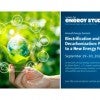
Baker Institute and Baker Botts’ Annual Energy Summit to examine global energy transition
HOUSTON – (Sept. 15, 2021) – The 2021 Annual Energy Summit at Rice University’s Baker Institute for Public Policy will explore the critical issues affecting global energy markets, oil and gas, electricity, renewables and the environment in a virtual conference Sept. 29-30.

Rice U. expert available to discuss cryptocurrency taxes
HOUSTON – (Sept. 13, 2021) – Cryptocurrency — an estimated $2 trillion market — has created an estimated $1 trillion tax gap and become too big to avoid regulatory oversight, according to a new blog post from an expert at Rice University's Baker Institute for Public Policy.

How can Uncle Sam tax cryptocurrency?
Cryptocurrency — an estimated $2 trillion market — has created an estimated $1 trillion tax gap and become too big to avoid regulatory oversight, according to a new blog post from Joyce Beebe, fellow in public finance at Rice's Baker Institute for Public Policy.

Climate progress requires competition, not cooperation, with China
HOUSTON – (Sept. 8, 2021) – Global climate progress requires fundamentally altering the economic bottom line that’s the foundation of the Chinese Communist Party’s power– and it will come through competition, not cooperation, according to experts at Rice University’s Baker Institute for Public Policy and the U.S. Naval War College.

Biden continues Trump’s ‘benign neglect’ of USMCA
HOUSTON – (Sept. 7, 2021) – Mexican officials are right to worry that the United States’ “rules of origin” interpretation in the United States-Mexico-Canada Agreement could reduce Mexican automobile production and investment, according to an expert from Rice University’s Baker Institute for Public Policy.

Rice U. experts available to discuss 20th anniversary of Sept. 11
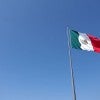
Webinar will explore Mexico’s 'improvised war' on drugs
HOUSTON – (Sept. 2, 2021) – Former Mexican President Felipe Calderón’s approach to combating organized crime and the country's “improvised” war on drugs will be the subject of a webinar from the Center for the United States and Mexico at Rice University's Baker Institute for Public Policy.
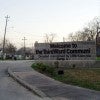
Historic Houston neighborhoods focus of study on small business

Paper: Wealth inequality shrinking after Trump-era tax reform, but progress at risk
Wealth inequality dropped in 2019 in the U.S. for the first time in almost three decades, but proposed tax legislation is threatening to reverse the progress, according to an expert at Rice’s Baker Institute for Public Policy.

HOUSTON – (Aug. 27, 2021) – Wealth inequality dropped in 2019 in the U.S. for the first time in almost three decades, but proposed tax legislation is threatening to reverse the progress, according to an expert at Rice University’s Baker Institute for Public Policy.
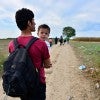
US must take responsibility for Afghan refugees, says expert
As some Afghan refugees fleeing the chaos in their home country head to the United States, Kelsey Norman, fellow for the Middle East and director of the Women’s Rights, Human Rights and Refugees Program at Rice's Baker Institute for Public Policy, argues that the U.S. is dodging responsibility by distributing most refugees across the globe, which will force them to wade through more bureaucracy.

Shale oil investments may be protected from nationalization, experts say
Shale oil’s short-cycle production protects foreign investors from the risk of expropriation — government taking private property for public use — providing an opportunity for the increasingly risk-averse global petroleum industry, according to a new report.

People, papers and presentations for Aug. 16, 2021
The Baker Institute for Public Policy’s Kelsey Norman, fellow for the Middle East and director of the Women’s Rights, Human Rights and Refugees Program, has been awarded the 2021 Emerging Scholars Policy Prize
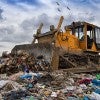
Sustainability alone cannot fix waste management woes, says expert
Both sustainability practices and a circular economy can help maximize the world’s resources, but the ideas are not interchangeable, according to a new brief from Rice's Baker Institute for Public Policy.